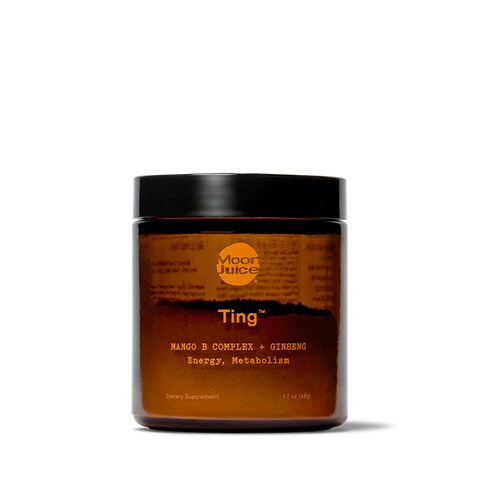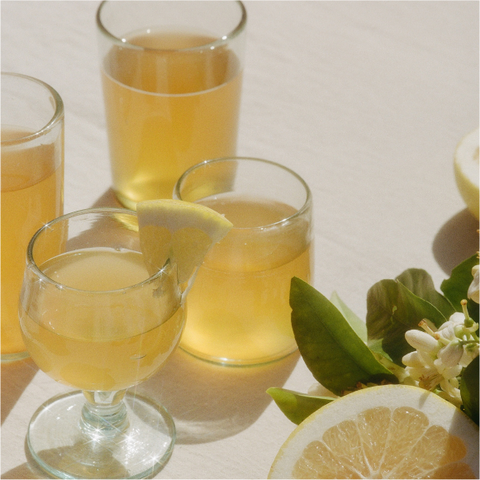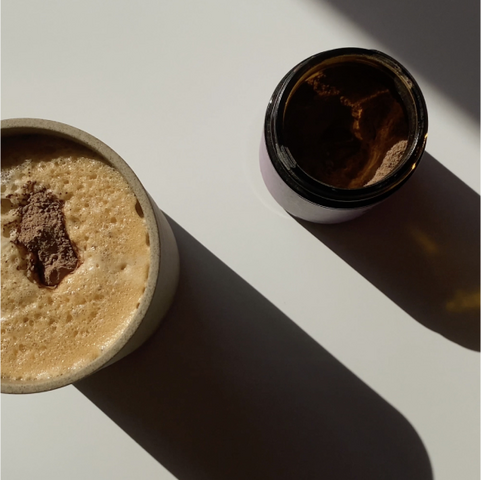Feeling sluggish and void of vitality? Is your coffee habit doing more harm than good? If you’re tapped out and tired from one day to the next, it’s probably a good time to reevaluate and adjust your dietary routine. Instead of increasing your caffeine intake or reaching for a quick-fix sugar rush, it’s much healthier and more sustainable to discover what foods give you more energy — sans stimulation and blood sugar imbalances.
The best foods that give you energy will support the function of your brain and entire body. Rather than straining, draining, and depleting your resources, they’ll support balance courtesy of crucial nutrients that promote energy, metabolism, and mood.
If you're looking for foods that will give you a natural energy boost, this article is for you. Keep reading to see which foods pack a punch and can help you successfully bid farewell to fatigue.
1. Bananas
For some people, it’s second nature to reach for a banana before working out. That’s because it’s one of the best foods that give you energy, courtesy of:
- complex carbs, which take longer to break down than simple carbs (i.e., those from highly processed and sugar-rich foods) and promote better blood sugar balance and sustained energy
- Vitamin B6, which helps convert food to cellular energy
- Potassium, which helps process energy function in cells and avoid muscle cramps
If you want to boost energy naturally, try adding bananas to your diet.
2. Oats
Similar to bananas, oats are a complex carbohydrate and serve as a slow-burning source of energy as well as Vitamin B6. Oats also support serotonin production. Serotonin isn’t only a key neurotransmitter for mental health; it can also help save and sustain the energy level in your body.
Note: It’s best to opt for steel cut oats versus instant oatmeal packets, the latter of which typically includes more sugar and additives.
3. Beans
Given their rich and balanced nutrient profile, beans are among the top foods to support energy production. As the US Dry Bean Council notes, beans are a great source of:
- Plant-based protein
- Complex carbs
- Fiber
- Antioxidants
- Minerals (including Folate, Manganese, Potassium, Iron, Phosphorous, Copper, and Magnesium)
Research shows that higher bean consumption is linked to health benefits including:
- Higher nutrient intake
- Lower body weight
- Lower waist circumference
When you consume an adequate amount of vitamins, minerals, and antioxidants — namely those with low glycemic loads that won’t spike your blood sugar — you’re bound to have more energy. The same goes for when you maintain a healthy weight. Per a 2016 randomized controlled trial published in the journal Appetite, high glycemic load diets (especially in overweight adults, but also otherwise healthy adults) are associated with higher:
- Fatigue
- Mood swings and disturbances
- Symptoms of depression
4. Lentils
Similar to beans, lentils are a great source of protein, complex carbs, and fiber. Altogether, they offer a slow-burning, steady source of energy without blood sugar spikes and dips. Lentils are also a good source of minerals. Most impressively, a single cup of cooked lentils offers 90 percent of the recommended daily intake (RDI) of Folate, aka Vitamin B9.
All B-Vitamins help the body convert food into fuel and support nervous system function, among many other tasks. A lack of these energy-boosting vitamins can lead to signs of low energy such as:
- Mental sluggishness
- Poor memory
- Irritability
- Shortness of breath
5. Hummus
Yes, chickpeas are technically a lentil. Yet if you prefer a dip or spread to snack on for energy versus cooking up a warm chickpea dish, hummus is a safe bet — especially if you scoop it up with mixed veggies.
Per a 2016 review in the journal Nutrients, people who regularly eat hummus and/or other preparations of chickpeas have:
- Higher intakes of fiber; Polyunsaturated Fatty Acids (PUFAs); Vitamins A, C, and E; and Folate, Magnesium, Potassium, and Iron
- Higher Healthy Eating Index (HEI) scores, which demonstrates adherence to the USDA’s recommendations for nutrient intake and dietary patterns
Chickpeas and hummus can also help manage weight, regulate glucose and insulin, and have a positive impact on cardiovascular health. Each of these perks can promote higher energy levels and long-term well-being at large.
6. Dark Leafy Greens
Dark leafy greens — including kale, spinach, and collard greens — can help stave off fatigue, promote healthy energy levels, and support overall well-being.
Most leafy greens are a rich source of vitamins and minerals to keep you healthy and alert, such as:
- Vitamins A, C, and K
- Vitamin B6
- Folate
- Calcium
- Magnesium
- Potassium
- Iron
In addition, these greens pack fiber and a variety of antioxidants. To get more of these nutritional powerhouses in your diet, incorporate them into salads, smoothies, sandwiches — or sauté or steam them to enjoy as a side dish for dinner.
7. Salmon
Salmon is routinely recommended as part of a healthy, well-rounded diet for several reasons. Arguably, its chief claim to fame is that it’s rich in heart-healthy, brain-nourishing Omega-3 Fatty Acids. In addition, it’s a terrific source of energy-boosting B-Vitamins, including:
- Thiamine (Vitamin B1)
- Riboflavin (Vitamin B2)
- Niacin (Vitamin B3)
- Pantothenic Acid (Vitamin B5)
- Pyridoxine (Vitamin B6)
- Cobalamin (Vitamin B12)
But that’s not all. Salmon is rich in protein and the mineral Selenium. The latter plays a critical role to:
- Support metabolic processes
- Stave off oxidative stress
- Promote optimal thyroid hormone levels
Each of these are beneficial to keep your energy levels up and keep your body up and running as it should.
8. Chia Seeds
If you’re looking for an energy-boosting food, you may be surprised to learn that chia seeds make the cut. Seeds can be easy to overlook or underrate given their size, but they’re small but mighty nutritional powerhouses.
Chia seeds can help sustain energy given thanks to their content of protein, healthy fat (including Omega-3s), and fiber. Plus, it's also a complex carbohydrate, which means these seeds help balance blood sugar levels. And while they may not be the first thing that comes to mind when you want to eat something to power a workout, you may want to reconsider. A small study in endurance athletes found that a chia seed drink was a viable option to enhance performance for a run lasting over 90 minutes.
Considering their benefits for energy and endurance, try starting the day with chia pudding.
9. Cinnamon
As is the case with seeds, spices might not automatically come to mind when you want to eat foods that give you energy. However, cinnamon can be highly beneficial in your quest to stay healthy and alert — and that’s on top of its innately invigorating aroma.
Research shows that cinnamon can enhance insulin sensitivity and keep your blood sugar levels in check. In addition, oral intake of cinnamon extract can reduce brain swelling (thus supporting blood-brain barrier function) and even mitigate severe neuronal loss and memory impairment.
10. Almonds
Almonds are among the best snacks for energy. They’re a great source of plant protein, fiber, and healthy fat, as well as B-Vitamins and Magnesium. One small study showed that participants who consumed 60 grams of almonds per day over four weeks had reduced fasting glucose levels and lower markers of insulin resistance.
Remember: Better metabolic health is key to more energy.
Sign Up, Nerd Out
Get wellness tips, education, and recipes
delivered straight to your inbox.
Get wellness tips, education,
and recipes delivered
straight to your inbox.
Additional Natural Remedies for Energy
Luckily, it’s also possible to sip your way to more energy without having to rely on coffee. Complement your energy-boosting diet with a few refreshing drinks.
Water
Plain and simple H2O is crucial to keep both your hydration status and energy up. When your body is short on fluids, you’re more likely to feel fatigued — not to mention countless other signs of physical and mental duress. One small study in young, healthy men who deprived themselves of water experienced:
- Decreased speed, accuracy, and mental endurance within 3 hours
- Less stability after 9 hours
- Less energy after 15 hours
Recommendations vary for how much water you should drink daily. Per the US National Academies of Sciences, Engineering, and Medicine, adequate daily fluid intake (across water, water-rich foods, and other fluids) is 15.5 cups for men and 11.5 cups for women.
You may also need to adjust your fluid intake based on factors such as:
- Your age
- How much you exercise
- How much you sweat
- Medical conditions
- Seasonal and environmental factors
Green Tea
Last but not least, green tea is one of the healthiest drinks on the planet and is fantastic for an energy boost. It’s rich in various antioxidants that promote good health and longevity. While green tea naturally contains caffeine, it also offers non-stimulating L-Theanine, a nootropic amino acid that promotes alertness and mental clarity. Considered one of the top supplements to boost energy, L-Theanine is respected in the scientific and wellness communities since it produces relaxed focus without shakiness or drowsiness.
Natural Supplements for Energy
Sticking to a healthy, diverse diet packed with the above foods that give you energy can allow you to get more pep in your step. Yet if you’re looking for a little something extra, a natural energy supplement, like Ting™, can also come to the rescue.
This clean powder blend can help boost energy, slow metabolism, and mood thanks to:
- B Complex (Vitamin B1, B2, B3 Niacin, B5, B6, B9) to help convert fat, protein, and carbs into energy*
- Methylated B12 to support healthy serotonin production*
- Adaptogenic Ginseng to support healthy brain function and short-term memory*
While vitamin B is known to be an energy-boosting vitamin, Ginseng happens to be one of the best adaptogens for energy. To power your days with vigor and vitality, add a half teaspoon of the tasty caffeine-free energy supplement to 16 ounces of water daily. It makes for the perfect energy drink alternative.
Sources
- https://pubmed.ncbi.nlm.nih.gov/17167858/
- https://www.mayoclinic.org/healthy-lifestyle/nutrition-and-healthy-eating/in-depth/water/art-20044256
- https://www.ncbi.nlm.nih.gov/pmc/articles/PMC3355124/
- https://www.health.harvard.edu/healthbeat/are-there-energy-boosting-foods
- https://www.bayareacancer.org/2019/04/29/benefits-of-oatmeal-with-recipe/
- https://www.ncbi.nlm.nih.gov/pmc/articles/PMC4696992/
- https://usdrybeans.com/health-nutrition/
- https://pubmed.ncbi.nlm.nih.gov/18845707/
- https://pubmed.ncbi.nlm.nih.gov/27507131/
- https://www.fao.org/pulses-2016/blog/everything-you-need-to-know-about-lentils/en/
- https://www.mountsinai.org/health-library/supplement/vitamin-b9-folic-acid
- https://www.ncbi.nlm.nih.gov/pmc/articles/PMC5188421/
- https://www.fns.usda.gov/CNPP/healthy-eating-index-hei
- https://www.osfhealthcare.org/blog/get-in-the-greens-with-leafy-vegetables/
- https://fdc.nal.usda.gov/fdc-app.html#/food-details/171998/nutrients
- https://health.clevelandclinic.org/selenium-benefits/
- https://www.ars.usda.gov/northeast-area/beltsville-md-barc/beltsville-agricultural-research-center/invasive-insect-biocontrol-behavior-laboratory/people/donald-c-weber/chia-salvia-hispanica/
- https://pubmed.ncbi.nlm.nih.gov/23102179/
- https://pubmed.ncbi.nlm.nih.gov/21183832/
- https://ajcn.nutrition.org/article/S0002-9165(23)28111-3/fulltext
- https://www.ars.usda.gov/news-events/news/research-news/2009/researchers-study-effect-of-cinnamon-compounds-on-brain-cells/
- https://pubmed.ncbi.nlm.nih.gov/32901372/
- https://pubmed.ncbi.nlm.nih.gov/20580779/
- https://pubmed.ncbi.nlm.nih.gov/18296328/














